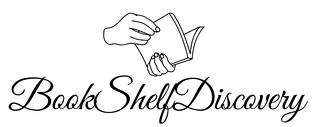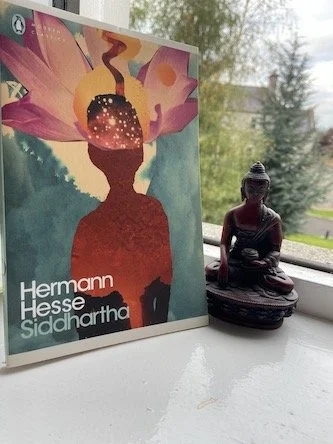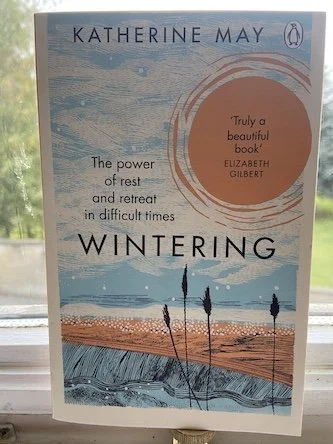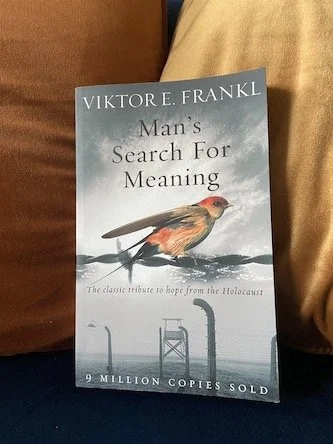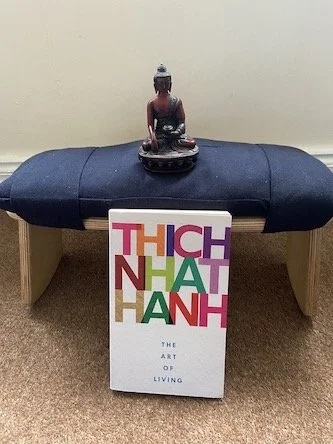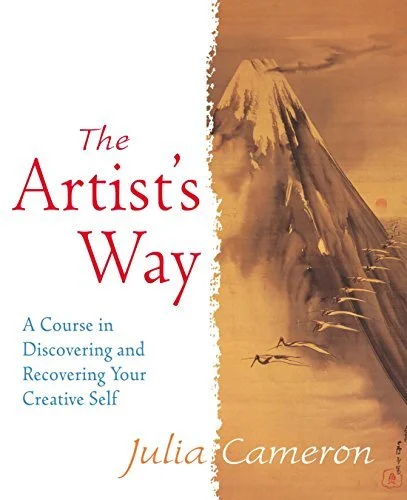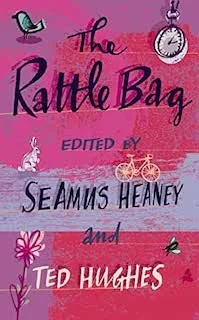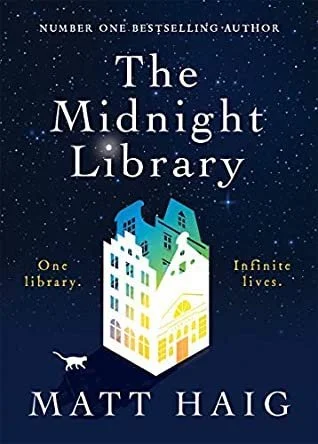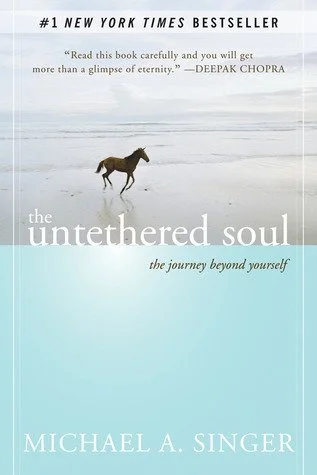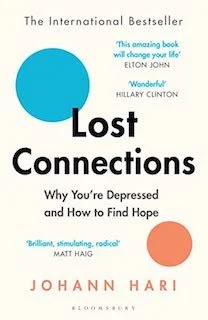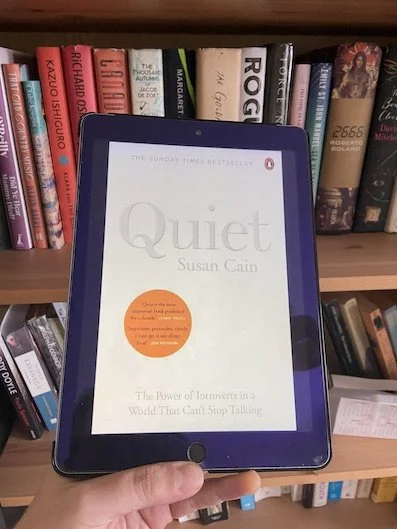Best Self Discovery Books
It happens. You lose your way. You get stuck. And you’re not even sure which is the right direction to go. Are you upside down, inside out or back to front? This has happened to me and I’m going to share some books that helped. Because that’s sometimes all you need; just to feel you are going in the right direction.
When you feel lost in life, what to do?
Sometimes you can take that many wrong turns that you end up back where you started. And that’s ok, because we all have to start somewhere, again and again if need be.
And the right book at the right time might be exactly what you need. Self Help, self love, call it what you want, these are some of the best books about self discovery I’ve read. Think of them as a trail of breadcrumbs to help you find your way home - life-changing books about finding yourself when you feel lost.
Siddhartha - Herman Hesse
A while back I was tagged in a Twitter post by an old friend. The topic was books that had helped you through a rough time. He reminded me that in a Dublin bookshop twenty years ago, I had recommended this book to him, about a week before his mother succumbed to a long term illness. He read it the weekend after she died, and said nothing has ever helped him cope with a tough time more.
I was really moved by this, and I realised I’ve probably bought this book more than any other, because I keep giving it away and recommending it. For me, it’s the simplicity of the story, the language and it’s message.
I think I discovered this book about thirty years ago, when I was a student. I had an interest in meditation, but this was one of my first introductions to eastern philosophy. The first part of the book mirrors the life of Buddha, but ultimately becomes something different. There’s no plot as such - rather, it details the nature of Siddhartha’s relationships with those he meets on the way, including his lifelong friend Govinda, Gotama Buddha, and a courtesan called Kamala to name a few. It’s through these encounters that Siddhartha learns deeper truths, and the importance of questioning teachers.
To be honest, I’ve forgotten the story. It’s the message that resonated, and that I can reach and pull the book off the shelf any time I need to (I replaced a copy recently). I learn something each time, because we cannot stand in the same place in the river twice. I now look at my life from a different perspective than when I was I teenager. The book helped me to see that we can discover much more when we stop searching, and be still. It allowed me to see the the importance of cultivating mindfulness, stillness, and compassion.
For me this life-changing book cuts through the bullshit. It mightn’t work for everyone, and there are some that may find it preachy. But it’s one of those books to read about finding yourself when you feel lost that I always turn to and it’s what I need to help me face in the right direction again and return to my practice. Definitely one of the best books about self-discovery you will read.
‘Yes Siddhartha,' he said. 'Is this what you mean: that the river is in all places at once, at its source and where it flows into the sea, at the waterfall, at the ferry, at the rapids, in the ocean, in the mountains, everywhere at once, so for the river there is only the present moment and not the shadow of the future?'
'It is,' Siddhartha said. 'And once I learned this I considered my life, and it too was a river, and the boy Siddhartha was separated from the man Siddhartha and the graybeard Siddhartha only by shadows, not by real things. ... Nothing was, nothing will be; everything is, everything has being and presence.”
Wintering - Katherine May
I read this book during the great lockdown winter of 2020. In reality it lasted from November to the end of January (though I would throw February in there as well, as it was particularly miserable) but it felt approximately six months longer than that. It wasn’t just that it was dark and cold - it was that it was relentless and interminable. Christmas was pretty much cancelled, families couldn’t gather and pubs, restaurants and cinemas all stayed closed. If it wasn’t for exercising daily and keeping my mind active with reading, I’m not sure how I could have coped.
My main source of entertainment during these months was provided by a bird feeder in the garden, patrolled zealously by a robin who liked to terrorise other feathered visitors, as they are quite territorial. And something else about the robin, which I had noticed and was confirmed in this book - it is the only bird who sings during the winter.
The author discusses her own experiences of winter, such as visiting a solstice at Stonehenge, thermal pools and the northern lights when heavily pregnant. There’s a beautiful and moving description of sea swimming. And Katherine also talks to people who live in the colder northern climates, and how the darkness, isolation and cold affects them. One of the parts that struck me, was a discussion with a woman who suffered from mood disorder, and had experienced years of tinkering with her meds. In the end, some of the advice she received from a doctor seemed particularly pertinent:
‘Live the best life you can with the parameters you have. Live the life you can cope with, not the life other people want you to have.’
I was feeling quite depressed during these months, like most of the planet I suppose, but this self help book for depression helped me to see winter in a different light - to view it as a time for rest, renewal and retreat. I suppose that sounds quite privileged of me to say so, but it’s not like I wasn’t working and keeping my head above water the whole time. My isolation may have been enforced during lockdown but I can see how I came out the other side by changing my perspective to it.
With the approaching winter, I think I have a different slant on it. Life ebbs and flows, and sometimes it’s necessary to pare back to the essentials. I think I’ll be better able to cope with this gem, one of the best books about self discovery about the restorative season of winter.
Man’s search for meaning - Viktor E. Frankl
I first came across this book during an episode of the excellent ‘Blindboy’ podcast. It was another of those lockdown books to help you find your purpose in life and helped me reassess the direction I was going in.
This is a short but extraordinary life-changing book. Already practising as a psychiatrist before he was deported to the concentration camps, Frankl survives four of them but loses his wife, parents and brother. The book is divided into two parts - his experiences in the death camps and how they influenced his theories, in particular how a human could survive and endure these conditions. A persons mental health couldn’t tested in a harsher environment. And the second part where he expounds on what he calls logotherapy. In short, his theory is that the primary purpose of life is man's search for meaning, which can be found from three sources - Purposeful work, love, and courage in the face of suffering.
"Everything can be taken from a man but one thing: the last of the human freedoms—to choose one’s attitude in any given set of circumstances, to choose one’s own way"
The Art of Living - Thich That Hanh
It was quite difficult to pick one book by the much loved spiritual teacher, zen master and peace activist known as ‘Thay.’ He was another author I discovered during the great 2020 lockdown, reading a few of his books, listening to his teachings on YouTube and eventually attending a weekend online retreat via Plum Village, a monastery in France. It was my first experience of a home retreat and I got a great deal of joy and comfort from it.
There’s always one well meaning friend who, when they hear you have lost your way, will say, ‘Have you tried meditating?’ I have a solid mediation practice of at least twenty minutes a day, and I usually try and bookend it in the evening with another short session. I have to say though, there are times when meditation is difficult. It can be hard to find even ten minutes in a busy life, and the thought of being with your thoughts for just ten minutes can horrify you. We can find ourselves so stuck at the bottom of the well that meditation is just not possible.
This is thing I like about Thay. I would consider him an ecumenical, secular teacher. Of course those ten minutes on the cushion are a start and a great way of bringing mindfulness into your day, but his teachings very much focus on the day that happens between those two sessions on the cushions. Life can toss us about like a bottle during the day, from one wave to another. By practicing mindfulness, we can continually return to the present and not react as much to the strains and pressures of our lives, although we are of course human. Just keep coming home.
I enjoyed listening to this on my daily lockdown walks, and found Thay’s teachings to be of great comfort. At times my own practice has been flagging and listening to his audiobooks and YouTube talks in the fresh air and countryside helped me enormously. Walking meditation has been a great discovery for this, and has become as important to me as my seated practice. The book is about the art of living mindfully, which sounds simple, but you have to practice, to keep returning to the present. One of the best books about self-discovery - simply going back home, to the breath.
“Walk as if you are kissing the ground with your feet.”
The Artists Way - Julia Cameron
I can’t quite remember when I first discovered this book. I know I had it on kindle first, which was fine, but it was only when my sister bought me a copy for Christmas a couple of years back that I really ‘discovered’ it. One of those books where you really need to own the physical copy.
I’m a short story writer. Not published, I just like the act of writing them and tinkering with them and sharing them with some close friends (Big shout out to my Australian readers at this point). It’s a hobby and like all worthwhile hobbies, it’s something that you can completely lose yourself in when you get into ‘The flow.’
‘The flow’ is what you see children do when they are completely absorbed in play, with crayons or with their toys. Somewhere along the way we lose this ability to just ‘play’ and get lost in the act of creation. Many of the exercise’s here help to get you creating again, something that I think is essential to mental health.
One of the exercises that really helped me were ‘The morning pages.’ Simply, you open a notepad and write for three pages, ideally before your conscious mind starts to take over. Just whatever comes into your head. I found this fundamental in helping me get over writers block and getting things moving again - because I was listening to myself, I came to realise just how important it was as one of those books to read when you feel lost.
Another nice idea is that of artist dates, where you take yourself off to one event a week, be it to a play, the cinema or a trip to museum. Just you, spoiling yourself with art. Selfish, sure, but a great way of filling the creative well again and devoting time to your artistic self.
It’s best to approach this inspirational book with open mindedness, and not to presume it’s a bit new-agey. As one of the best self discovery books using creativity, it’s as much about doing, as reading, and can help unblock you. Definitely one of those proactive books about finding yourself by encouraging you to tap into your subconscious and being creative.
“The reward for attention is always healing. It may begin as the healing of a particular pain—the lost lover, the sickly child, the shattered dream. But what is healed, finally, is the pain that underlies all pain: the pain that we are all, as Rilke phrases it, “unutterably alone.” More than anything else, attention is an act of connection.”
You’re not listening - Kate Murphy
It seems we live in a world where everyone wants to talk and no one wants to listen. It may be that you are already a good listener, but if not, a few chapters of this fascinating and lively book might soon set you straight. One of the most important questions the book asks is simply; when did you last really listen to someone?
Kate Murphy interviews a variety of people across numerous fields, including radio presenters, neuroscientists and psychologists, CIA interrogators and priests, bartenders and her great, great Aunt to name just a few. Each have something interesting to say on what seems like the lost art of listening.
And it does feel like a lost art, especially in this age of social media, as we may feel connected but are we really? And the level of poisonous discourse in the public sphere suggests it's not getting any better.
I considered myself a fair enough listener before I started this book, but after a few chapters I realised how wrong I was. But one of the great things is that it suggests how to become a better listener, becoming more empathetic and aware. By the end you are convinced that listening is a much greater skill than speaking, and one that you can practice and get better at.
This book helped me realise simply how important it is to listen in our social interactions, and how many of those do we have on a daily basis that actually feel worthwhile? It helped me to come unstuck because I realised the importance of being present with people, and open, heartfelt, communication. This is one of those books about finding yourself that helps you when you feel lost because you come to realise how important listening is, both to yourself and others.
At the end of the day, we are born with one mouth but two ears.
Staying Alive - Real Poems for Unreal Times
I’m pretty sure this book has been in my life for nearly twenty years, but I’ve probably never lifted it as much as I have in the last eighteen months. There’s just something in a poem that can offer consolation or identify in a line a mood or emotion that no other art form can. Definitely one of my favourite books to read when feeling lost.
This is an anthology of 500 poems, ranging from the famous to the lesser known. It’s divided into sections (‘Bittersweet’, ‘Body and Soul’ ’Dead and alive’ are just some) but what they all share for me is that they are both reflective and life affirming. I like to pull it down from the shelf, open it randomly or come back to a poem I’ve previously liked and read. Or maybe there’s one that didn’t make sense before, but now you’re standing in a different place, and you see it with a new understanding. I think it’s one of those life-changing books to read when you feel lost because you’ll always find something inspirational amongst the pages. For me poetry has always worked well in short bites, and this is one of the best anthologies I have come across. But of course I can’t mention this collection without recommending another one that has followed me around over the years - Rattlebag
I discovered this with via a particularly enlightened English literature teacher when I was a teenager and I’ve had a copy since. It’s the sheer breadth of the poems, picked by two greats of the genre. Again, it’s one to be opened at any page, as there is great joy to be had in the sheer randomness of the poems.
‘We are of one universe, but separated like the stars,’ said Henry Miller. Herman Hess wrote ‘Strange to wander in the mist, each is alone. No tree knows his neighbour. Each is alone.’”
Anthologies like this can leave you feeling more connected.
The Midnight Library - Matt Haig
Every time I saw this book advertised, I resisted it. I’m really not sure why. I think I had a notion of what is was about and I thought, I don’t need this book now. Even though I had read Matt Haig’s books before and found them thoughtful and comforting, I just couldn’t see myself enjoying this.
Finally I relented. Maybe I was having another bad day (or bad week/months as lockdown progressed) but a family member gave me a copy and I started reading.
Around the same time, I was listening to Bob Dylan’s latest album which contained a song called ‘I contain multitudes’. This is itself a quote from a Walt Whitman poem. I take from it that we are a result of everything that has gone before us. We are complex, we are paradoxical, we are both beautiful and messy.
Nora’s mental health is in a bad place and she finds herself lying between life and death. She is introduced to a midnight library which contains all of the possibilities of other lives she could have had, based on decisions made. What if she had kept up swimming, playing music, started a relationship, moved to Australia - hundreds of crossroads where different choices were made. It might sound trite, and maybe it is, but in the same way that ‘It’s a wonderful life’ is if you look at a description of it written down.
Nora is certainly one of those people asking the question: When you feel lost in life, what to do?
‘George Bailey has so many problems he is thinking about ending it all - and it's Christmas! As the angels discuss George, we see his life in flashback. As George is about to jump from a bridge, he ends up rescuing his guardian angel, Clarence - who then shows George what his town would have looked like if it hadn't been for all his good deeds over the years.’
The ultimate message is that life is for living, that we can be masters of our own destiny. We can only live this life, not the one others want us to live or those that we regret not living. Be aware of the life you are living now and the possibilities contained within it.
We are never outside life’s choices – everything leads somewhere.
The answer to an unasked question is always ‘No.’
I know after reading this inspirational book I was able to make a decision that I had been putting off for a long time. I’d been dithering, and I honestly believe this book gave me the courage to jump. I find myself much happier and in a better place thanks to that choice, and it’s possible my initial resistance came from subconsciously knowing that this book might force me to make a change. This is one of the best books to help with depression, as I know how lost I was.
It is easy to mourn the lives we aren't living. Easy to wish we'd developed other talents, said yes to different offers. Easy to wish we'd worked harder, loved better, handled our finances more astutely, been more popular, stayed in the band, gone to Australia, said yes to the coffee or done more bloody yoga. It takes no effort to miss the friends we didn't make and the work we didn't do and the people we didn't marry and the children we didn't have. It is not difficult to see yourself through the lens of other people, and to wish you were all the different kaleidoscopic versions of you they wanted you to be. It is easy to regret, and keep regretting, ad infinitum, until our time runs out.
But it is not lives we regret not living that are the real problem. It is the regret itself. It's the regret that makes us shrivel and wither and feel like our own and other people's worst enemy.
We can't tell if any of those other versions would of been better or worse. Those lives are happening, it is true, but you are happening as well, and that is the happening we have to focus on.
The Untethered Soul - Michael A. Singer
I mentioned this book in another post on Meditation and Mindfulness books that I have enjoyed but I think it’s deserving of it’s place on this list. It’s one of the best self discovery books I have read because it’s very much about the inward journey that many of us undertake.
We spend so much time listening to our ‘monkey mind’ - we are in thrall to these constant thoughts that pop up in our head, that we have no control over. We have a vision of how we want the world to be, and when it doesn’t conform to our expectations, we experience suffering.
This is an easy book to understand, but the message might take a little bit longer because you put into practice what’s been said. It’s about observing this monkey mind, being aware of these thoughts arising and falling away. After some time, and daily practice, you’'ll find yourself being able to break free from those thought patterns. It’s one of those life-changing books that will help you develop self awareness because when you feel lost it will help you see a path through, when maybe you hadn't been able to see one before.
Lost Connections - Johann Hari
I’ve already read and reviewed this book here and thought it would be perfect in this list as I think it’s definitely one of those great books to read when you are feeling lost. It reframed a lot of what I have been thinking about depression.
The general gist of the book is that it’s become too easy to look for chemical solutions to depression when the answers are much more complex.
“What if depression is, in fact, a form of grief—for our own lives not being as they should? What if it is a form of grief for the connections we have lost, yet still need?”
Hari challenges the established narrative of ‘healing’ depression with medication with research and statistics. He identifies nine causes of depression and anxiety (the two are closely interconnected). But where the book excels is when he investigates and talks with groups and individuals who have found a way of dealing with depression in a more organic way. In one sentence, it’s about the connections we make with each other and meeting not just our chemical needs, but our emotional, social and psychological needs.
I found a lot of hope in this book, as I’ve completely bought into the chemical narrative in the past, to my detriment. It’s important that our emotional needs are met (as well as material needs of course) and we need people and society. Just like a bee needs a hive, a human needs a tribe.
Since reading this book, I have made changes in my own life, and I can’t make a better recommendation for a book than that. It might not seem an obvious choice as one of the best self discovery books but I think it’s worthy of it’s place here as it offers advice on how to make improvements in your own life.
Anam Cara - Spiritual Wisdom from the Celtic World by John O’Donohue
I think one thing you can really do with when you are feeling lost is to turn to a dear friend. ‘Anam Cara’ means ‘Soul friend’ as Gaelige, and if you have one in your life, you can count yourself fortunate.
Friendship is one of the themes that the poet philosopher John O’Donoghue explores in this book, in his warm and lyrical style. Alongside solitude, work, death and love, he mixes Celtic mysticism, philosophy, poetry and literature to write a book that is consoling, wise and beautiful.
Keep one on your bookshelf, and get another copy for that dear friend, your ‘Anam cara’ - one of those books that they well treasure.
Quiet - The Power of Introverts by Susan Cain
I spoke about it in my review, but I found this an incredibly thoughtful and insightful book about introversion, which explained a lot of my own traits, whilst also encouraging us to embrace it.
I think it deserves it’s place on this list because it’s important for us to accept our own nature, and not try to change it because society demands it. It’s perfectly fine to be bookish, to enjoy your own company, whilst also spending time with friends and not being the loudest voice in the group. It’s also a useful book in encourages us to focus on areas that we find difficult, such as public speaking, and work on developing them.
It is a cliche but this is our life, our journey of self-discovery, and no one elses. We clear our own path through the undergrowth, finding our way. Accepting who we are is an important part of that, and this life-changing book is both validating and useful. As the authors say, reading the book can give us a ‘newfound sense of entitlement to be yourself.’
Not a book about discovering the self, more so about dissolving the sense of self. Which as this book will tell you, doesn't exist. I’m talking about non-duality, ‘the recognition that there is one single, infinite, and indivisible reality, whose nature is pure consciousness.’
Angelo explains it much better than I can. This is one of the clearest books I’ve read on the subject, and as I was reading it the revelations just kept coming. The book is full of pointers, which are a form of self-enquiry, a way of turning attention back on itself and seeing that there is nothing there.
The book doesn’t have any spiritual or arcane terms to get bogged down in - Angelo DiLullo is direct and constantly pulls the rug out from under your feet. Awakening is not some mythical state that we have to spend hours meditating to achieve - it’s our direct experience and we can access it now.
Some books set off a rocket under you, and this is one of them. I read it in a week and am about to start it again. This is a genuinely powerful book.
Other Book Lists
Books about Healing through Nature
Books about Bravery and Courage
Books to read during Stormy Weather
Books about Meditation and Mindfulness
Any self discovery books that have made a difference to your life that you’d like to include below?
